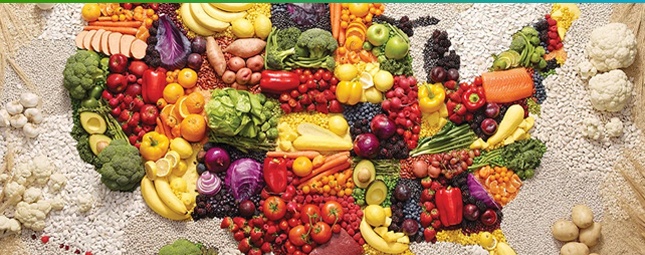U.S. Increases Focus on Food Waste Regulations. 80 Bills Introduced Last Year Alone.

Eighty state-level, food-waste related bills were introduced in the United States last year, according to research by Harvard’s Food Law and Policy Clinic. While tracking is spotty prior to 2017, the clinic believes this represents a strong uptick.
In addition, the country’s first federal food waste bill was introduced in Congress in 2017.
“Policy makers are definitely becoming aware of this issue,” says Katie Sandson, a fellow at the Harvard Food Law and Policy Clinic. “Anecdotally, it appears to be a spike.”
Two strong areas of focus across this food waste regulation landscape are bills addressing date label standardization and liability protection for food donation. Consumer confusion around date labeling can lead to perfectly good food being thrown out for fear of expiration. And some food producers avoid donating overproduced food for fear of opening themselves up to liability.
Sandson says a rising area of interest is in organic waste bans: states putting limits on the amount of food waste that can go to landfills. Five states -- Massachusetts, Connecticut, Rhode Island, Vermont and California -- have all implemented food waste bans in the past four years. New York and New Jersey introduced similar bills last year.
The bills function similarly, identifying what large food-producers are covered, and setting limits on the amount of organic waste that can be sent to landfills, where the decomposing food generates large amounts of greenhouse gases.
In the first two years after Massachusetts implemented its organic waste plan, 900 new jobs and $175 million of economic activity were generated, while reducing 270,000 tons of food waste annually, according to nonprofit ReFED.
The federal Food Recovery Act, introduced by Congresswoman Chellie Pingree and Senator Richard Blumenthal, would introduce a number of measures to encourage food donations, including liability protection, expanded storage facilities, as well as education grants.
“There's a distinct trend toward commonsense policies involving little or no cost, such as eliminating needless state-level date labeling requirements, or explicitly expanding food donation liability protections to promote food recovery,” says Chris Hunt, communications director with nonprofit ReFED. “In the near future, I expect to see more low- or no- cost legislation…”
Despite this activity, the United States is following the momentum from Europe, where food waste regulations are common.
Here is a timeline of the regulatory landscape in Europe:
2010
Scotland publishes its Zero Waste Plan, which sets targets of 70 percent of waste to be recycled, and maximum 5 percent sent to landfill, both by 2025.2011
The UK makes reducing food waste a legal requirement. UK companies have a Duty of Care to operate according to the principles of waste minimization and the waste hierarchy. The waste hierarchy has been incorporated into UK law through The Waste (England and Wales) Regulations 2011 and the Waste (Scotland) Regulations.2014
EU declares 2014 “The Year Against Food Waste.”Scotland updates the Waste (Scotland) Regulations 2012, requiring food businesses producing more than 50Kg of food waste per week to segregate food waste for separate collection. After January 1, 2016, the law extends to premises used as a hospital and to all businesses producing over 5kg of food waste per week.
The UK’s Department for Environment publishes “How food shops, manufacturers, and distributors must dispose of or handle former foodstuffs or food waste,” defining which food waste items can be diverted to animal feed.
2015
EU adopts UN Sustainable Development Goals, including a target to halve per capita food waste at the retail and consumer level by 2030, and reduce food losses along the food production and supply chains. Supported through commissions established to share best practices in date labeling, food donations, and food waste prevention.(The United States Department of Agriculture announces the domestic goal to reduce food loss and waste by half by 2030, putting it in alignment with UN Target 12.3.)
2016
France bans food disposal from grocery stores. All edible food waste must be donated.2017
In a report from The Economist, France is recognized as the top EU country reducing food waste. The people of France waste 234 pounds of food per person annually, compared to about 430 pounds per capita thrown away yearly in the United States.
